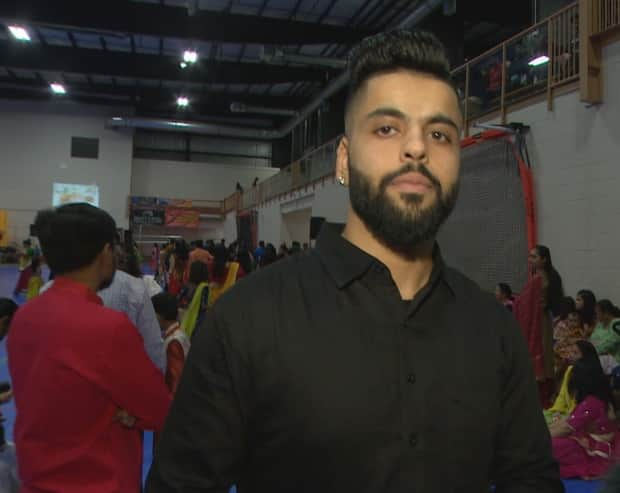After 2 years of pandemic darkness, Sask. Hindus celebrate Diwali, the festival of lights, in person
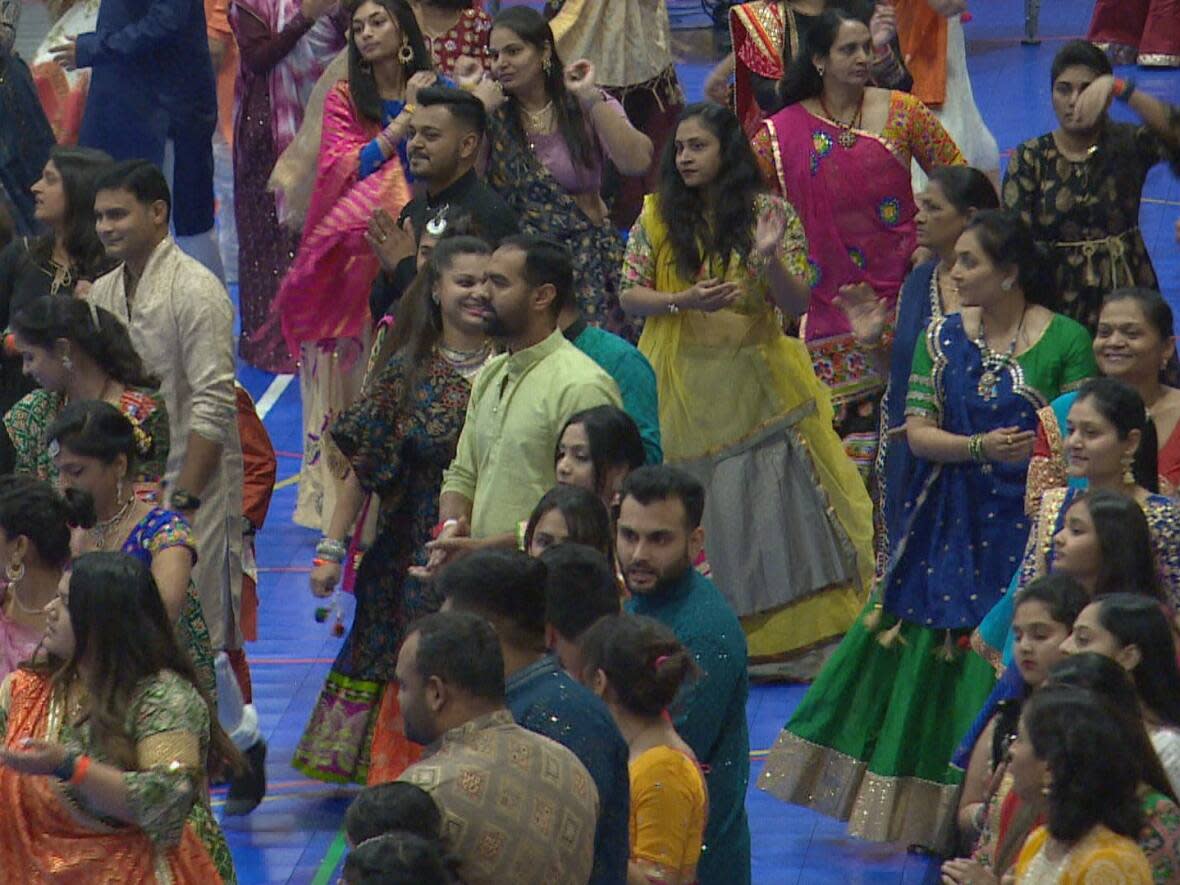
After the past two Diwalis were spent in pandemic shutdowns, Saskatchewan South Asians are gathering in person Monday to celebrate.
"In Hindu culture, there are many festivals, but Diwali is one of the most important," Kulwant Rai said.
The Saskatoon resident has been celebrating Diwali in Saskatchewan for the past 45 years.
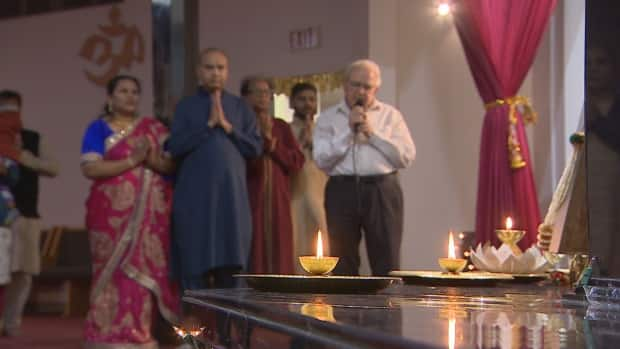
Diwali is usually celebrated a fortnight after Dussehra.
According to Ramayana, one of the two major Sanskrit epics of ancient India and an important text in Hinduism, Dussehra marks Lord Rama killing the 10-headed demon king Ravana, who had abducted Lord Rama's wife goddess Sita.
"Diwali marks the day when Lord Rama arrived in his kingdom Ayodhya after 14 years of exile. That day 'diyas,' or oil lamps, were lit to celebrate his arrival on that new moon night or 'Amavasya,'" Rai said.
"Another reason to celebrate is to welcome goddess Lakshmi into our homes, who represents wealth, wisdom and prosperity."
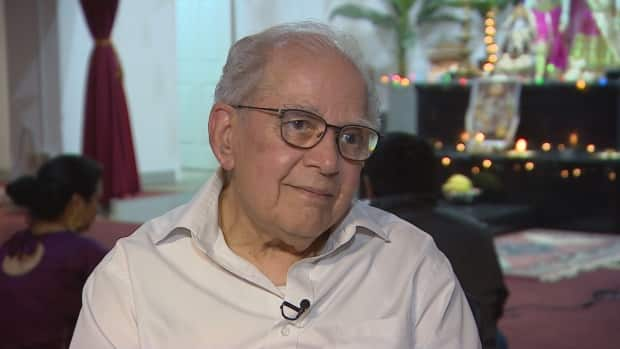
Since then, Diwali has been celebrated across India and other parts of South Asia on an Amavasya and remains an auspicious religious festival for Hindus, Sikhs and Jains.
"Diwali is the festival of lights. Like Christmas, we celebrate Diwali with string lights. It's the victory of good over evil."
Rai said it is the most important festival for Hindus in Saskatchewan.
"With the growing number of South Asians in the city and province, Diwali is the time to bind the community."
Rai said that during the pandemic, celebrations were scaled down due to restrictions, but now it has "resumed in a real sense."
"Up until January this year, things were uncertain. Diwali is very different this year. You can meet people, hug and be with friends and family. It's all about recreating those memories from back home," Meenu Sharma said.
"Diwali is the festival my family and I always look forward to."
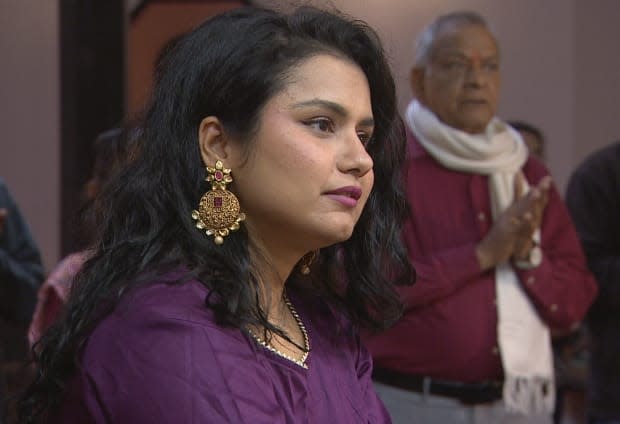
Sharma usually attends his local temple to sing prayers and contribute to the community.
"We start cleaning our homes months in advance. We get decorations, new pillow covers, bedsheets, everything is colourful, and we cook snacks," she said.
"The sweets are the most important. For kids, Diwali is just about that and toys."
Sharma will be cooking a variety of curries, vegetable sabzis and desserts like carrot puddings, gulab jamuns and kaju katlis.
'It's a holy month for us'
Though the main celebration falls on Diwali day, and the associated festivities usually last five days, celebrations in the Hindu community have been ongoing for the past month.
The Hindu festival of Navratri, which comes with nine nights of fasting and dancing to honour the triumph of good over evil, precedes Dussehra.
The festival is dedicated to the nine forms of the Hindu goddess Durga. Each day represents a different form of the goddess. Navratri — derived from "nav" meaning nine and "ratri" meaning nights — is most widely celebrated in autumn, although it also comes again in the spring.
Garba, a traditional dance with origins in the Indian province of Gujarat that involves large groups of people dancing in circles around a statue of Durga clad in cultural clothing, was cancelled in the pandemic years.
But this year, many Garba nights were organized throughout Saskatchewan. CBC spoke with some attendees at one such event.
"It's all about the feminine energy," Manish Shamnani, one of the organizers of an event, said. "People dance in concentric circles. As the night passes and the beat picks up, we dance faster."
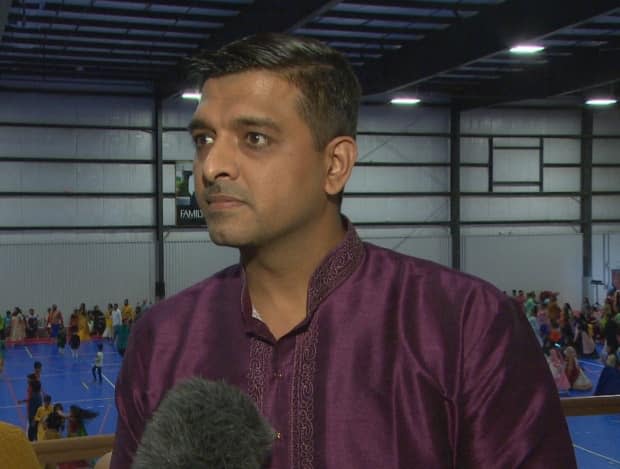
Shamnani said that when he moved to Saskatchewan in 2000, there were only a few community members, but now 1,200 people regularly attend from all pockets of the province.
Kruti Patel has been doing garba since childhood to celebrate feminine power.
"Diwali comes after Navratri, but it's a holy month for us," she said.
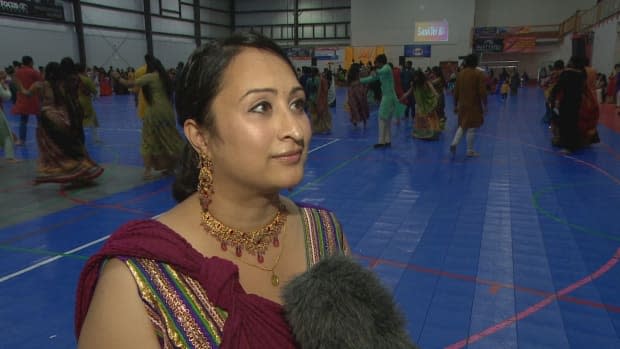
Ishita Patel said this time of year ferments the festive fervour in everyone.
"Old or young, we all dance. It binds us together," she said. "Navratri begins the transition from bad to good and Diwali is the festival to mark it."
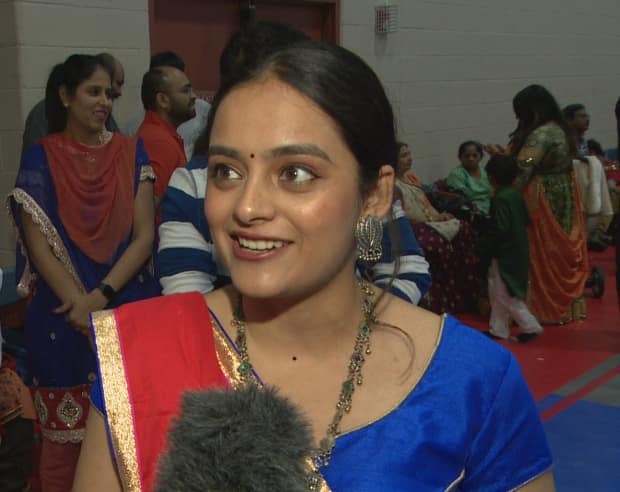
For many, it is a way to find home in a foreign land.
Prarit Arora, an international student at University of Saskatchewan, said though he hails from a different culture, garba night is something he enjoys.
"Being overseas connects us all, we don't have our parents here but these events bring us together. Diwali back home and here can be different but people are the constants."
